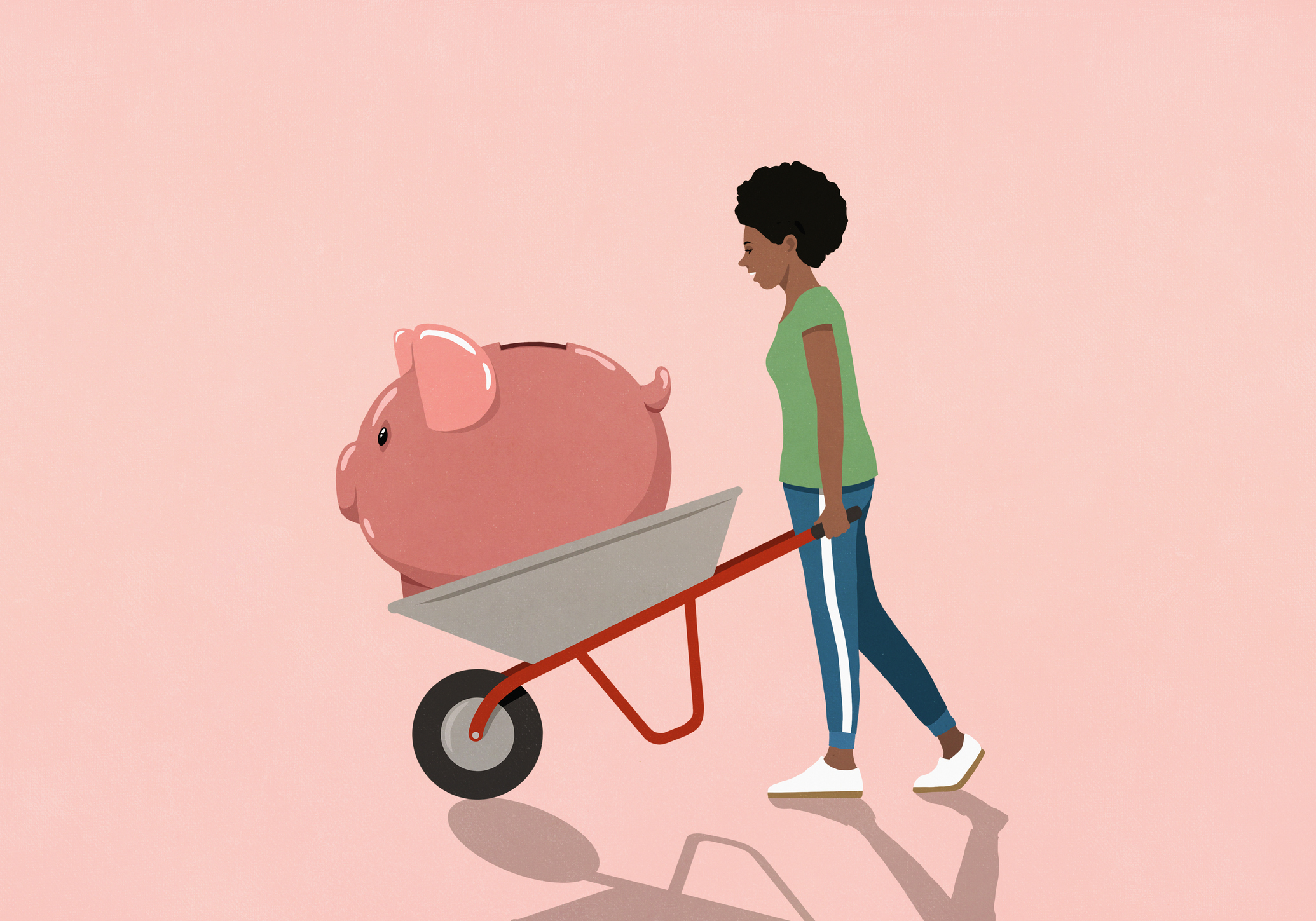I Have $150,000 That I Don’t Need Anytime Soon, but I Don’t Want To Put It in the Market. What Should I Do?
My strategy offers a guaranteed return that can earn you thousands effortlessly.


Profit and prosper with the best of Kiplinger's advice on investing, taxes, retirement, personal finance and much more. Delivered daily. Enter your email in the box and click Sign Me Up.
You are now subscribed
Your newsletter sign-up was successful
Want to add more newsletters?

Delivered daily
Kiplinger Today
Profit and prosper with the best of Kiplinger's advice on investing, taxes, retirement, personal finance and much more delivered daily. Smart money moves start here.

Sent five days a week
Kiplinger A Step Ahead
Get practical help to make better financial decisions in your everyday life, from spending to savings on top deals.

Delivered daily
Kiplinger Closing Bell
Get today's biggest financial and investing headlines delivered to your inbox every day the U.S. stock market is open.

Sent twice a week
Kiplinger Adviser Intel
Financial pros across the country share best practices and fresh tactics to preserve and grow your wealth.

Delivered weekly
Kiplinger Tax Tips
Trim your federal and state tax bills with practical tax-planning and tax-cutting strategies.

Sent twice a week
Kiplinger Retirement Tips
Your twice-a-week guide to planning and enjoying a financially secure and richly rewarding retirement

Sent bimonthly.
Kiplinger Adviser Angle
Insights for advisers, wealth managers and other financial professionals.

Sent twice a week
Kiplinger Investing Weekly
Your twice-a-week roundup of promising stocks, funds, companies and industries you should consider, ones you should avoid, and why.

Sent weekly for six weeks
Kiplinger Invest for Retirement
Your step-by-step six-part series on how to invest for retirement, from devising a successful strategy to exactly which investments to choose.
Question: I have $150,000 that I don't need anytime soon, but I don't want to put it in the stock market. What should I do?
Answer: If you're looking for a risk-free place to store your money, my best solution is a jumbo CD. Jumbo CDs come with FDIC insurance up to $250,000 and APYs that'll outpace inflation.
However, there are a few things you want to consider before signing up for one. I'll cover key considerations, how much you can earn and why now is the right time to get one.
From just $107.88 $24.99 for Kiplinger Personal Finance
Become a smarter, better informed investor. Subscribe from just $107.88 $24.99, plus get up to 4 Special Issues

Sign up for Kiplinger’s Free Newsletters
Profit and prosper with the best of expert advice on investing, taxes, retirement, personal finance and more - straight to your e-mail.
Profit and prosper with the best of expert advice - straight to your e-mail.
How does a jumbo CD work?
A jumbo CD is a type of savings account that requires a large deposit, typically between $10,000 - $100,000. Similar to regular CDs, you'll open an account with an initial deposit and let it grow through its term.
If you need to withdraw it before the maturity date, you'll have to break your term. Doing so results in significant penalties, reducing the interest you'll earn on your investment. The longer your CD term is, the higher the penalties you'll incur.
What's beneficial about jumbo CDs is that they require shorter terms of six months to a year, so you'll have quick access back to your cash. Explore and compare options quickly using the tool below, powered by Bankrate:
Things to consider before signing up for one now
Along with making sure you can keep your money tied up in one place, you'll also want to shop around to ensure you're receiving the best rate of return.
Traditional banks usually cannot compete with online banks. Online banks don't have brick-and-mortar locations, meaning they don't have the overhead expenses, so they can offer more generous returns. While accessing your cash at the end of the term can be trickier, online banks allow you to transfer money to other accounts.
Keep in mind that many banks autorenew CDs. Set a reminder on your phone a week before the maturity date so you can explore other options, reinvest in the same CD, or cash out if rates are much lower.
Why should I sign up for one now?
The Federal Reserve issued its first rate cut of 2025 at its September meeting. When the Fed cuts rates, it lowers the returns savers can earn on all savings accounts, including jumbo CDs.
How much does a cut impact rates? Before the Fed meeting, My eBanc had a one-year jumbo CD with a 4.45% APY. After the cut, the rate is down to 4.15% APY. That 0.30 percentage-point dip may not sound like much, but on a $150,000 deposit, it’s the difference between earning $6,675 and $6,225 over 12 months — a $450 gap.
While many savings products fall when the Fed lowers rates, CDs stand out because their interest rates are fixed. That means locking in a jumbo CD now protects your return when the Fed cuts rates again, which they're projected to do this week at its October meeting.
Therefore, locking in a rate now ensures you're maximizing your savings potential, without any of the risks that the stock market offers. While you might not be able to earn as much as you would with investments, jumbo CDs can deliver substantial returns.
How much can I make with a jumbo CD?

One of our top choices is Finworth. Finworth offers a six-month jumbo CD with a generous APY of 4.10%. Parking your $150,000 there for six months earns you $3,557.44 in earned interest. Not bad for a short investment.
A longer-term option is Prime Alliance Bank. It offers a one-year jumbo CD with a 4.15% APY. Depositing $150,000 into it earns you $6,225 in one year.
On the fence about which terms sound the best for you? My solution is to find what works best for your financial goals.
If you don’t need access to your money for a while, consider locking it into the longest jumbo CD available. Doing so guarantees you earn the highest rates of return to maximize yields.
Meanwhile, if you're unsure about tying up your money that long, opt for a short-term option. I often use short-term CDs as a way to stay on track with savings goals, and they consistently help me achieve them.
Ultimately, while savings APYs took a slight dip from the Fed cutting rates, you can still earn an exceptional return with a jumbo CD. With rates around 4% for both short-term and longer-term options, you'll earn thousands of dollars effortlessly with a $150,000 deposit.
The key is to lock them in now before the Fed cuts rates again this week. If you do, you'll stay ahead of inflation while having access to your cash quickly, which you can reinvest in another CD or consider other options that work best for your financial goals.
Related content
Profit and prosper with the best of Kiplinger's advice on investing, taxes, retirement, personal finance and much more. Delivered daily. Enter your email in the box and click Sign Me Up.

Sean is a veteran personal finance writer, with over 10 years of experience. He's written finance guides on insurance, savings, travel and more for CNET, Bankrate and GOBankingRates.
-
 The New Reality for Entertainment
The New Reality for EntertainmentThe Kiplinger Letter The entertainment industry is shifting as movie and TV companies face fierce competition, fight for attention and cope with artificial intelligence.
-
 Stocks Sink With Alphabet, Bitcoin: Stock Market Today
Stocks Sink With Alphabet, Bitcoin: Stock Market TodayA dismal round of jobs data did little to lift sentiment on Thursday.
-
 Betting on Super Bowl 2026? New IRS Tax Changes Could Cost You
Betting on Super Bowl 2026? New IRS Tax Changes Could Cost YouTaxable Income When Super Bowl LX hype fades, some fans may be surprised to learn that sports betting tax rules have shifted.
-
 How Much It Costs to Host a Super Bowl Party in 2026
How Much It Costs to Host a Super Bowl Party in 2026Hosting a Super Bowl party in 2026 could cost you. Here's a breakdown of food, drink and entertainment costs — plus ways to save.
-
 3 Reasons to Use a 5-Year CD As You Approach Retirement
3 Reasons to Use a 5-Year CD As You Approach RetirementA five-year CD can help you reach other milestones as you approach retirement.
-
 How to Watch the 2026 Winter Olympics Without Overpaying
How to Watch the 2026 Winter Olympics Without OverpayingHere’s how to stream the 2026 Winter Olympics live, including low-cost viewing options, Peacock access and ways to catch your favorite athletes and events from anywhere.
-
 Here’s How to Stream the Super Bowl for Less
Here’s How to Stream the Super Bowl for LessWe'll show you the least expensive ways to stream football's biggest event.
-
 The Cost of Leaving Your Money in a Low-Rate Account
The Cost of Leaving Your Money in a Low-Rate AccountWhy parking your cash in low-yield accounts could be costing you, and smarter alternatives that preserve liquidity while boosting returns.
-
 This Is How You Can Land a Job You'll Love
This Is How You Can Land a Job You'll Love"Work How You Are Wired" leads job seekers on a journey of self-discovery that could help them snag the job of their dreams.
-
 We Inherited $250K: I Want a Second Home, but My Wife Wants to Save for Our Kids' College.
We Inherited $250K: I Want a Second Home, but My Wife Wants to Save for Our Kids' College.He wants a vacation home, but she wants a 529 plan for the kids. Who's right? The experts weigh in.
-
 4 Psychological Tricks to Save More in 2026
4 Psychological Tricks to Save More in 2026Psychology and money are linked. Learn how you can use this to help you save more throughout 2026.